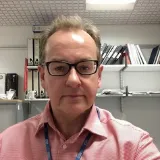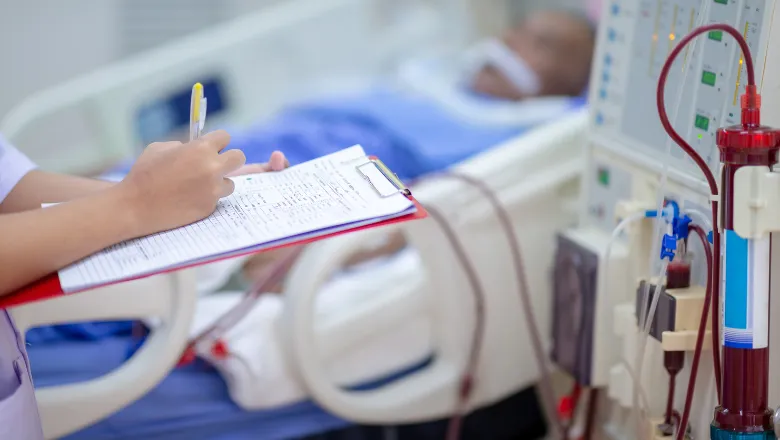
Professor Anthony Dorling
Professor of Transplant Inflammation and Repair
Research interests
- Immunology
Biography
Anthony qualified in Medicine from the University of London in 1987 and gained membership of the Royal College of Physicians in 1990 (followed by Fellowship in 2005). He gained his PhD in Immunology from the Royal Postgraduate Medical School in 1996 and finished specialist training in nephrology before being appointed Senior Lecturer (later Reader) in Immunology at Imperial College (Hammersmith Hospital) in 2000. He moved to KCL, with Honorary Consultant status at Guy’s, in 2009. The theme of his research programme is ‘vascular inflammation’, focusing on the cellular and molecular mechanisms involved in vascular rejection. He has shown that coagulation proteases, such as thrombin, play a critical role in inflammatory vascular disease, including rejection and atherosclerosis. These same pathways are also involved in chronic arteriosclerosis and tissue fibrosis. He is co-inventor of a novel therapeutic, called Thrombalexin, that is expected to undergo first in man testing in 2019/20. Clinically, he focuses on patients undergoing antibody-incompatible transplantation and in those with chronic rejection. His translational work has confirmed that B cells play a significant role in processing and presenting donor antigens in these patients, but has revealed a heterogeneous complexity that includes maintenance of tolerance mechanisms in a significant proportion of patients. He is co-PI of the large UK RCT OuTSMART.
Research

Transplant Inflammation and Repair
A major research theme of the TIR is ‘vascular inflammation’, focusing on cellular and molecular mechanisms involved in immune responses relevant to transplants.
News
Optimising immunosuppression based on antibody testing does little to reduce kidney transplant failure rate
Treating patients who possess transplant rejecting antibodies, using best available combinations of oral drugs, does not have an impact on transplant failure...

Researchers successfully model antibody-mediated transplant rejection in human kidneys
The discovery may allow scientists to investigate new mechanisms and test treatment strategies for transplant rejection outside of the human body.

Events

MD test 16-10-23
This symposium aims to test something with the pics
Please note: this event has passed.

Guy's Hospital Kidney Transplantation Symposium 2023
This symposium aims to provide an update on all aspects of Kidney transplantation carried out by expert clinicians in the field at Guy's Hospital - a leading...
Please note: this event has passed.
Research

Transplant Inflammation and Repair
A major research theme of the TIR is ‘vascular inflammation’, focusing on cellular and molecular mechanisms involved in immune responses relevant to transplants.
News
Optimising immunosuppression based on antibody testing does little to reduce kidney transplant failure rate
Treating patients who possess transplant rejecting antibodies, using best available combinations of oral drugs, does not have an impact on transplant failure...

Researchers successfully model antibody-mediated transplant rejection in human kidneys
The discovery may allow scientists to investigate new mechanisms and test treatment strategies for transplant rejection outside of the human body.

Events

MD test 16-10-23
This symposium aims to test something with the pics
Please note: this event has passed.

Guy's Hospital Kidney Transplantation Symposium 2023
This symposium aims to provide an update on all aspects of Kidney transplantation carried out by expert clinicians in the field at Guy's Hospital - a leading...
Please note: this event has passed.
